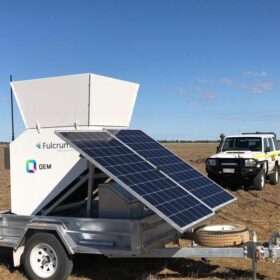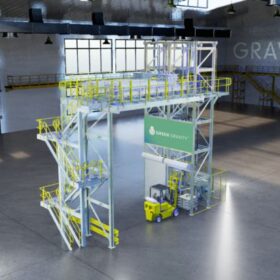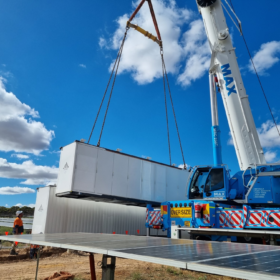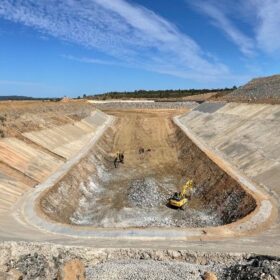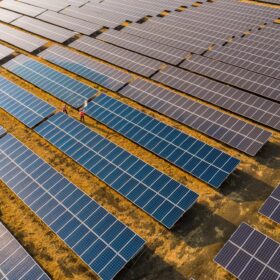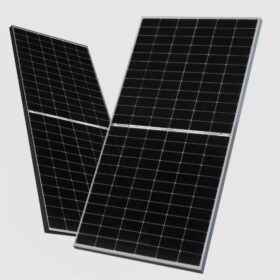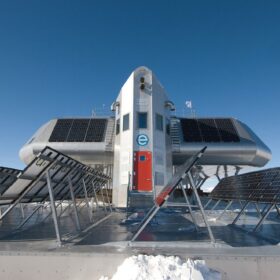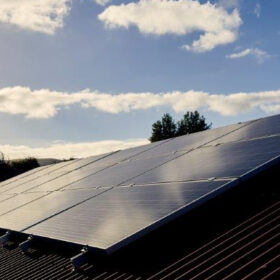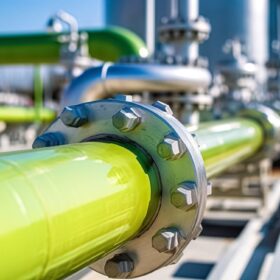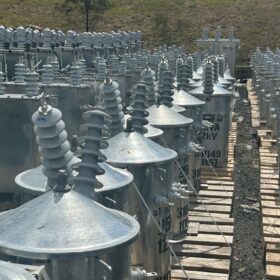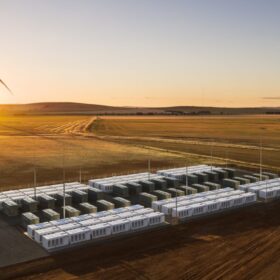Energy majors make shortlist for 1 GW renewables project
Australian miner QEM has shortlisted three non-binding indicative bids to develop, own and operate a proposed 1 GW of wind and solar energy to power its planned vanadium mining and oil shale project near Julia Creek in northwest Queensland.
Green Gravity links with miner to fast track gravity energy storage tech
Australian renewable energy startup Green Gravity has teamed with underground mining contractor RUC to accelerate the commercialisation of its gravitational energy storage technology which rests on moving weighted objects through disused mine shafts.
Company developing neighbourhood battery portfolio looks to reform tariffs, connection criteria
Australian developer ACEnergy is building an initial portfolio of 10 neighbourhood batteries totalling 50 MW/100 MWh across Victoria and New South Wales. The company is also engaging networks to lobby for reforms to the connection process and tariff structure in light of grid support the technology can offer.
Genex lands $45 million funding package for pumped hydro and solar and battery projects
Australian renewable energy developer Genex Power has entered into agreements with Japanese electric utility J-Power to receive a multi-million-dollar funding package that will support the delivery of its 2 GWh pumped hydro project in northern Queensland and the development of the 2 GW Bulli Creek solar and battery project in the state’s southeast.
TotalEnergies, Gentari to co-develop 100 MW Queensland solar farm
French oil and gas supermajor TotalEnergies has signed an agreement with Gentari Renewables, the clean energy arm of Malaysia’s state-owned oil company Petronas, to jointly develop a 100 MW solar farm in southwest Queensland.
Test shows higher yield, lower degradation for n-type solar modules
Research carried out by China‘s National Photovoltaic Quality Inspection Center shows that new n-type TOPCon modules are living up to their promise, outperforming the previous generation of p-type PERC products. Data gathered over six months from a fixed-tilt PV system showed that the n-type products produced 3.69% more energy, and also suffered much lower performance losses.
Weekend read: The world’s coolest solar
The world’s most efficient energy network, at an Antarctic research base, has had a solar upgrade, reports Tristan Rayner.
Rooftop solar on radar as South Australia looks to future
The South Australian government is calling for input from industry and consumers to help it determine what role rooftop solar, batteries, electric vehicles, green hydrogen and other renewable technologies will play in its future energy system.
Line Hydrogen to break ground on Tasmanian green hydrogen project
Construction of what is shaping to be Tasmania’s first operational commercial-scale renewable hydrogen production facility is to commence in the coming weeks after Line Hydrogen secured development approval for its 7.6 MW George Town green hydrogen project.
Energy transition is off-track, says IRENA
The global transition to carbon-free energy has fallen behind pace to limit global warming to 1.5 degrees Celsius, a key threshold set forth by the Paris Agreement.
